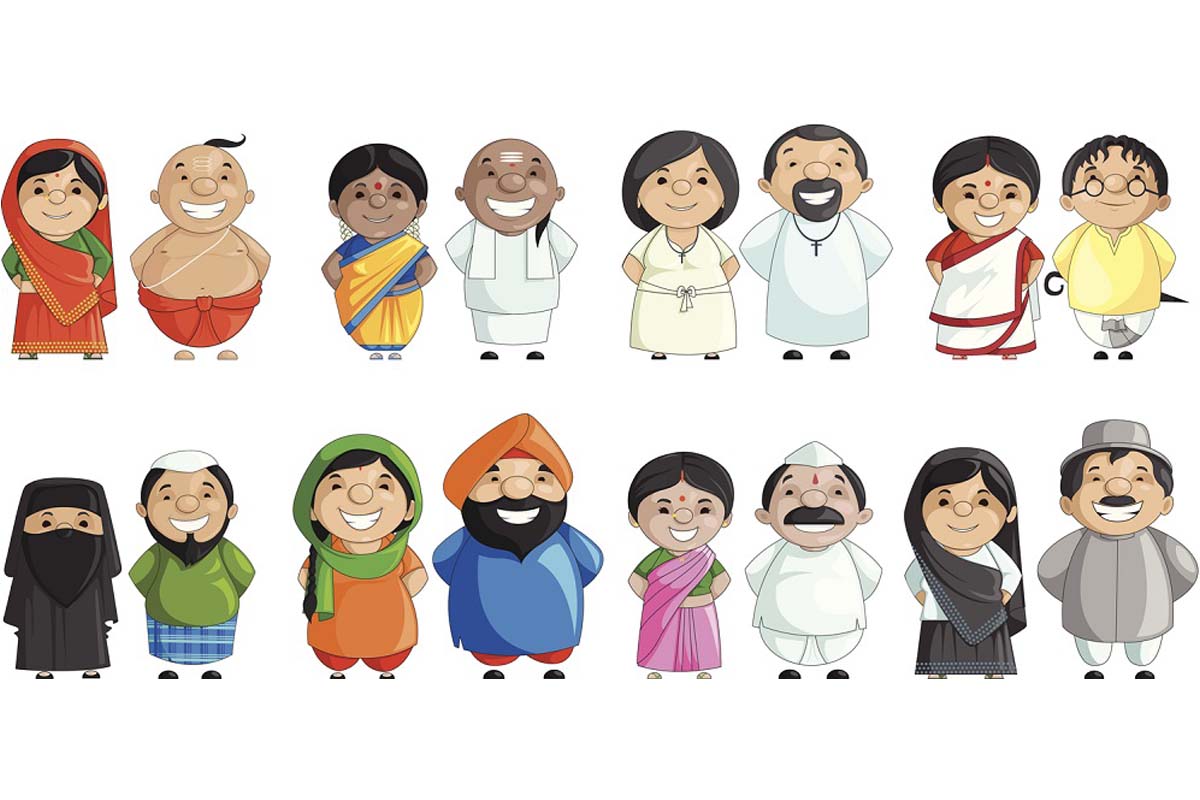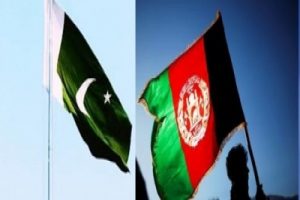To this writer, the nation has always seemed a mega version of his home. Just as his family as well as his extended family was an extension of his own wife and children. For a Hindu, his caste has, over the centuries, been the next horizon. In this context, he has considered his faith as personal and by no means anything like a fence or a dividing line between him and the universe. For example, in Gujarat, a Vaishnav marrying a Jain is not usual. The staunchest Sikh would not bat an eyelid before proposing to a Hindu girl, if all else were equal.
The Abrahamic religions with their origin in West Asia, are kept at a distance. For the rest, faith was personal whereas other horizons were socio-political. This is not to say that the country is not dear to the Hindu; for example, to this day, most people resent, bitterly or forgivingly, that the country was partitioned. The subcontinent is still referred to as the country. On the other hand, Pakistan, the New Medina was allowed to separate without any effort at persuasion. The reported brutality inflicted by General Tikka Khan on one’s own brother citizens was unprecedented.
Advertisement
Yet when for the first time, Pakistan lost to Bangladesh in cricket their then captain Wasim Akram was casual enough to say: “After all, we have lost only to our Muslim brothers”. On the other hand, the pain in Hindu hearts is reflected in the Rashtriya Swayamsevak Sangh remembering every August 14 with grief, as Akhand Bharat Diwas or Undivided India Day. If this is all the value that Pakistan attaches to its holy land, let me remind them: why don’t they suffer a single whisper of sorrow for leaving behind the largest number of Muslims in an “unholy” land, which for them is India? In Arabic, India would be called Dar-ul-Harb by the Muslim, or the land of conflict.
This is happening to the Pakistanis because they have not thought through their conception of nationalism. This confusion is illustrated by the way Pakistan has twisted and turned the facts of its own history. Otto von Bismarck, Chancellor of Germany during the latter half of the 19th century, with valour and imagination, had unified Germany by 1870. Some 20 principalities were brought together into one country. Most Germans were proud of this achievement. Yet, they reconciled themselves to their bifurcation after World War II. The two maps were incongruous, as the city of Berlin was stuck well inside of the East German territory although threefourths of it belonged to the Western portion.
However, none of the seven West Germans this writer met over the years expressed any enthusiasm for reunification. Publicly, no move, demand or agitation for a coming together has been on record. Three of the seven Germans I met were frank enough to admit that they hated Communists more than they loved their Prussian brethren. This meant that the fear of ideology superseded the pull of nationhood. One of the seven however, hinted at the Prussian Junker being not always popular. Is nationalism a person’s search for a larger identity? It is easy and comfortable to be small or moderate. But a larger identity is likely to be more satisfying, whether for the human pride, his/her political influence or economic benefit et al. Just as most families would like their sons to be tall and prosperous. If the family remains one and motivated, there are greater chances of its becoming successful. However, unity is not always easy to sustain.
All the factors and forces that work against it can be suspected of anti-nationalism. The first such force was Judaism. The Jews love their religion and it is one faith which in its early times had an outstanding prophet called Moses. The scriptures that happened to be written by this great man are the holy scriptures for the Jews. Collectively, these scriptures are called the Torah. Early Judaism did face enemies, namely from Mesopotamia and others, but a comprehensive threat to it emerged gradually as Christianity grew century by century to dominate Europe. As it happened, this religion of Jesus contributed to the flowering of nationalism. The ruling elites of the nationalist states were often adversarial to Judaism as potentially anti-Christianity.
The result was that in order to remain united, Judaism turned supranational. Chaim Weizmann, a prominent Jewish leader, has defined supra-nationalism as: “There are no American Jews, no Russian Jews, no British Jews, no French Jews, no German Jews; there are Jews in America, Jews in Britain, Jews in France, Jews in Germany, Jews in Russia.” Weizmann persuaded the British government through its foreign secretary Lord Arthur Balfour in 1917 to announce that the Jews would be allotted a homeland in Palestine before long. The second great supranational factor is Islam and its Sunnis, who put their faith in what they call the ummah (the world community). The Sunnis comprise approximately 90 per cent of all Muslims.
Sir Sayyid Ahmad Khan, the first post-Sepoy Mutiny Muslim leader, was clear that Muslims were separate from the Hindus and he was anxious to keep his community away from any nationalistic tendency or sentiment. He also exhorted his followers to stay away from the Congress, which had begun promoting Indian nationhood. The poet Allama Iqbal was more emphatic on the subject of nationalism. After his stay in Europe, he apprehended that due to the collapse of four empires at the end of World War I, many new nation-countries had blossomed.
They might well pose a threat to Islam in general and especially in India with Britain being the connection. He critiqued the idea of nationalism, questioning its sanctity, and started moving towards the transnational Muslim community. Iqbal expressed his staunch opposition to the idea of nationalism in the following couplet: “Country is the biggest among the new gods! What is its shirt is the shroud of religion”. The next supranational movement was Marxism. In fact, Karl Marx was clear that the nation-state is an instrument in the hands of the bourgeoisie, the industry-owning and land-owning rich. They were looked upon as the exploiters of the working class and therefore had to be liquidated. Communism thus pitted the classes against the masses, bringing about, effectively, a civil war, which is suicidal, unless brought to an end quickly.
The Soviet Union, the erstwhile Czarist empire thus ensured its own breakup in a matter of decades. Of the other two supranational forces, Judaism has lasted long, although at a shrinking pace. Islam, on the other hand, has shown all signs of vigour, although along the way, it has aroused a great deal of resentment. By now, it has clashed with non-Muslims on all the continents of the globe except South America. Muslims have made Europe almost an embattled continent. This is not to say that supranationalism is the only adversary of a well-knit, united nation. Pakistan broke up in 1971 because the Bengali-speaking East Pakistanis could not co-exist with the Western wing indefinitely.
One could call this antithetical to national identity. Neither Islam nor Urdu nor the Muslim League could keep the Pakistanis together as one nation, as virtually all separatist leaders from Sir Sayyid Ahmad Khan downwards had taken it for granted. Even the presence of 30 per cent Hindus (in 1947) did not help East Bengal from remaining united with Pakistan. Another example would be that of Slovakia separating from the former Czechoslovakia. A few years earlier, Yugoslavia broke into several pieces, contemporaneous with the Soviet Union.
The saga of the USSR splitting into sixteen republics in 1991 is well known. Christianity bypassed supranationalism because it allowed itself to follow slightly differing theologies. The 16th century Reformation gave Protestant churches a free play. In a number of cases, the monarch led the free play. For example, Henry VIII led England into the Anglican Church and broke away from the Vatican. In the German principalities, the monarchs chose the denomination preferred by their people. The earliest example was that of the 4th century transfer of the Roman capital from Rome to Constantinople (now Istanbul). The emperor and his family were instrumental and setting up what is now called the Eastern Orthodox Church.
(The writer is an author, thinker and a former Member of Parliament)











